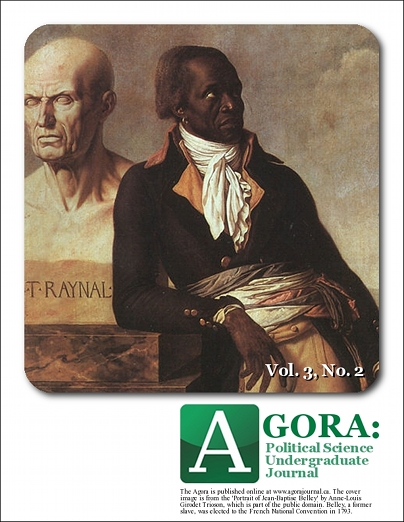Dragon Fears: An Examination of Canadian Perceptions of Chinese State-Owned Enterprises
DOI:
https://doi.org/10.29173/agora19906Keywords:
CNOOC, Nexen, National Security, International TradeAbstract
“What’s so scary about the CNOOC-Nexen deal?” 1 reads an article regarding the recent takeover bid. Although the deal has been fully approved, the question is one of many still gripping the issue over CNOOC’s (China National Offshore Oil Corporation) takeover bid of Nexen, a Calgary based oil and gas company. 2 However, this ongoing issue has broader implications; specifically if Chinese state-owned enterprises (hereafter SOEs) present a challenge or opportunity for Canadian national security interests. With the decline in trade and economic activity in the United States, Canada’s largest trading partner, new opportunities for Canada have presented themselves. China is one of them, a rapidly developing state whose hunger for energy continues to grow. The uneasiness that has come with the CNOOC-Nexen deal and the Canadian government’s recent response, displays the misguided approach of Canada towards the growing Chinese power. This paper explores the erroneous conceptions of Chinese SOEs, the implications of this and the possible solutions that can benefit Canada in the long term.
Downloads
Published
Issue
Section
License
Authors who publish with this journal agree to the following terms:
- Authors retain copyright and grant the journal right of first publication with the work simultaneously licensed under a Creative Commons Attribution License that allows others to share the work with an acknowledgement of the work's authorship and initial publication in this journal.
- Authors are able to enter into separate, additional contractual arrangements for the non-exclusive distribution of the journal's published version of the work (e.g., post it to an institutional repository or publish it in a book), with an acknowledgement of its initial publication in this journal.
- Authors are permitted and encouraged to post their work online (e.g., in institutional repositories or on their website) prior to and during the submission process, as it can lead to productive exchanges, as well as earlier and greater citation of published work.


